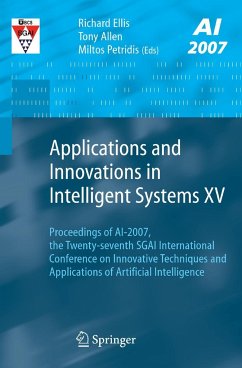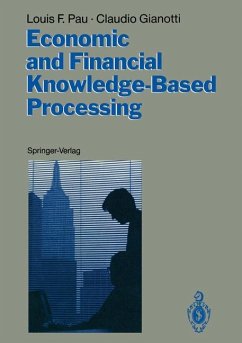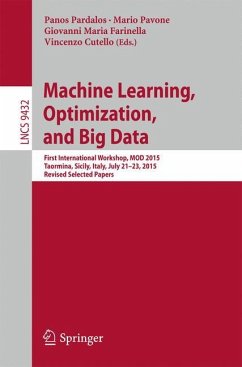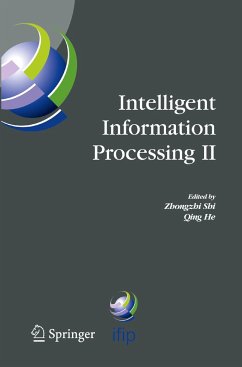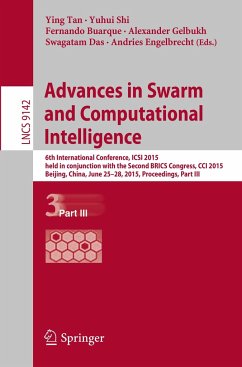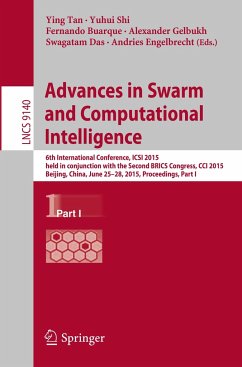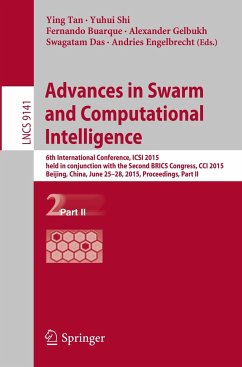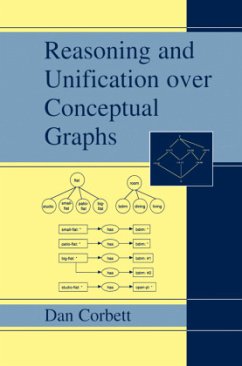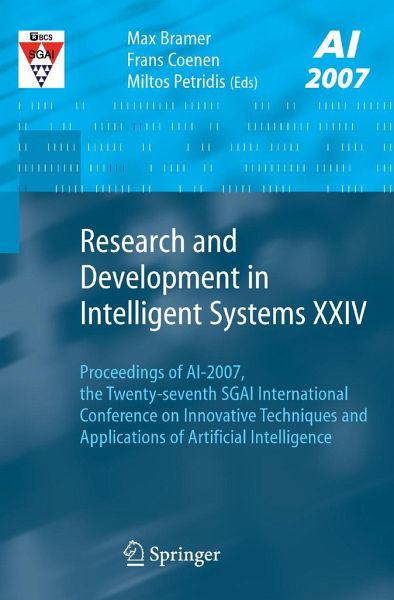
Research and Development in Intelligent Systems XXIV
Proceedings of Ai-2007, the Twenty-Seventh Sgai International Conference on Innovative Techniques and Applications of Artificial Intelligence
Herausgegeben: Bramer, Max; Coenen, Frans; Petridis, Miltos

PAYBACK Punkte
102 °P sammeln!
An agent in a multi-agent system (MAS) has to generate plans for its individual goal, but these plans may con?ict with those that are already being scheduled or executed by other agents. It must also be able to complete its planning and resolution of these con?icts within a reasonable time to have an acceptable quality plan. Although we adopt hierarchical planning (HP, for example, see [7, 12]) using the decision-theoretic planning (DTP) approach [6] for ef?cient planning, it is not trivial to apply HPO to MAS. In HP, appropriate (abstract) plans are selected level by level to maximize the uti...
An agent in a multi-agent system (MAS) has to generate plans for its individual goal, but these plans may con?ict with those that are already being scheduled or executed by other agents. It must also be able to complete its planning and resolution of these con?icts within a reasonable time to have an acceptable quality plan. Although we adopt hierarchical planning (HP, for example, see [7, 12]) using the decision-theoretic planning (DTP) approach [6] for ef?cient planning, it is not trivial to apply HPO to MAS. In HP, appropriate (abstract) plans are selected level by level to maximize the utility U (p), where where p is the expected ?nal plan comprising a sequence of primitive actions. However, in the MAS context, con?icts between agents affect the ef?ciency and quality of resulting plans. When a con?ict is found at lower levels, an additional sophisticated process for avoiding it (con?ict resolution) must be invoked and some extra actions (such as waiting for synchronization and detouring) may have to be added to the plan. The con?ict resolution process may become costly or fail. Even a single con?ict, if it is dif?cult to resolve, will result in a plan with considerably lower quality than it otherwise would have. As a result, in multi-agent systems, the second- or third-best plans may result in better overall performance.





